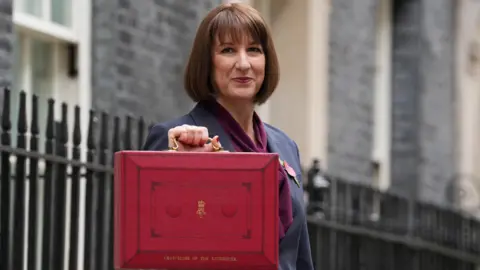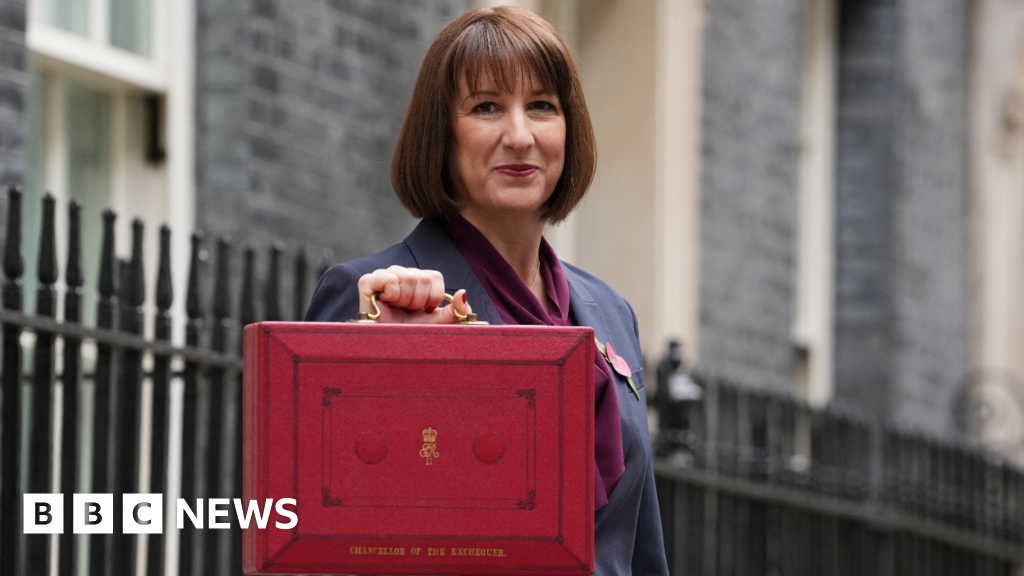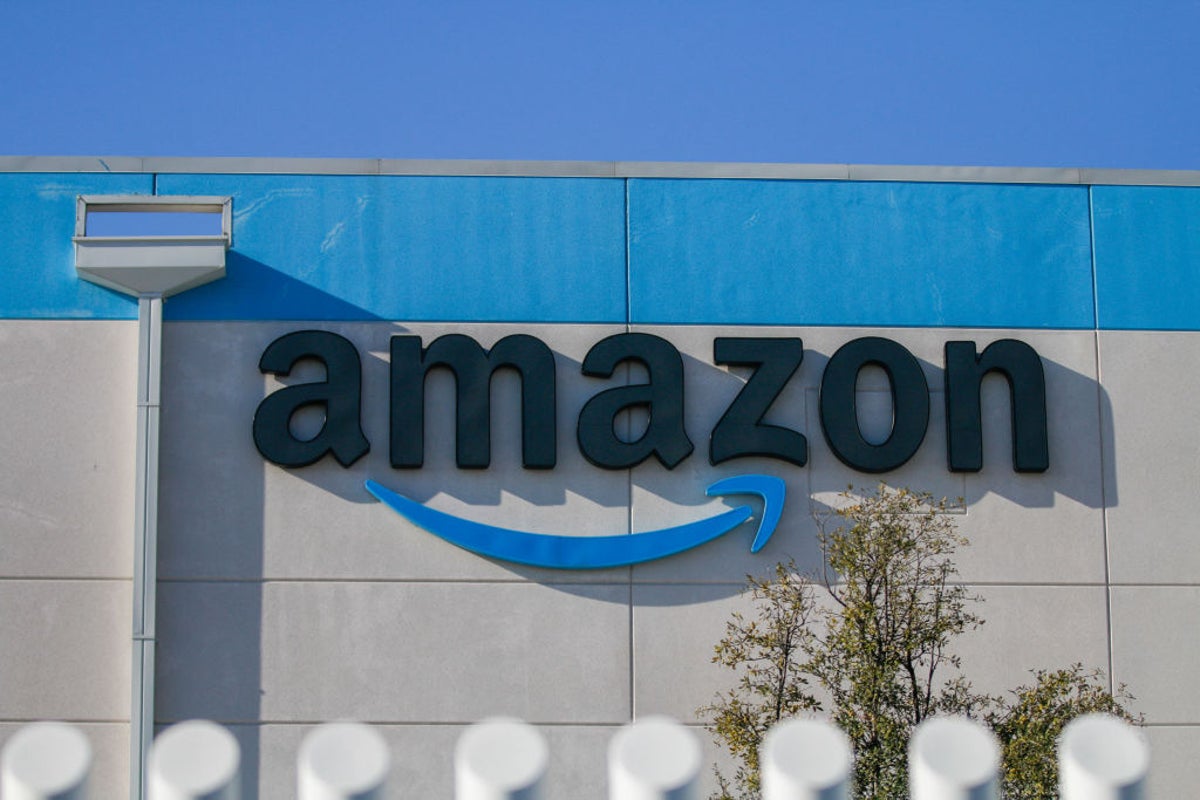 Reuters
ReutersChancellor Rachel Reeves has acknowledged she is considering tax rises and spending cuts in the Budget on 26 November.
Before the 2024 general election, Labour promised not to increase income tax, National Insurance or VAT for working people.
But the Institute for Fiscal Studies (IFS) says she will “almost certainly” have to raise taxes to make up what it estimates will be a £22bn shortfall in the government’s finances.
What happens during the Budget and what time is it?
The chancellor’s Budget statement outlines government plans for raising or cutting taxes. It also includes big decisions about spending on public services such as health, schools and police.
The statement is made to MPs in the House of Commons. It usually starts at about 12:30 UK time – after Prime Minister’s Questions – and lasts for about an hour.
The Leader of the Opposition, Conservative MP Kemi Badenoch, will give an immediate response. MPs will then debate the measures for four days, before voting on them.
Why is the chancellor considering putting up taxes?
What tax changes could be in the Budget?
Income Tax and National Insurance (NI)
The government could extend the current freeze on income tax and NI thresholds, which is due to end in 2028.
Freezing the thresholds means that, as salaries rise over time, more people reach an income level at which they start paying tax and NI or qualify for higher tax rates.
Talking to the BBC in September, Reeves did not rule out extending the freeze.
The Resolution Foundation think tank – which has close links to some members of the government – has recommended cutting 2p from the employee NI rate, while adding the same amount to income tax.
Reeves has signalled she is likely to focus on wealthy individuals, arguing “those with the broadest shoulders should pay their fair share”.
She may change the rules for limited liability partnerships (LLPs), which are sometimes used by high earning professionals such as lawyers and accountants. The Times reported that making this group pay employers’ National Insurance could raise £2bn.
Help with energy bills
In October, Reeves told the BBC that she would take “targeted action to deal with cost of living challenges” while inflation remains high.
The BBC understands the government could bring down gas and electricity bills by cutting the current 5% rate of VAT charged on energy, or by reducing some of the regulatory costs which suppliers can pass on to customers.
Property taxes
Reports suggest the government may reform property taxes. It could replace stamp duty – a tax buyers pay on properties above a certain value in England and Northern Ireland – with a property tax.
Landlords could have to pay more taxes, and council tax could be replaced.
Some people selling their main residence may have to pay capital gains tax (CGT).
Isa reform
In July, the chancellor ruled out any immediate reform to cash Isas (Individual Savings Accounts).
However, the FT has since reported that she may cut the cash ISA limit from £20,000 to £10,000.
Business taxes
The TUC, the umbrella group for trade unions in the UK, has called for higher taxes on banks and online gaming companies.
In September, the chancellor told ITV News that “there is a case for gambling firms paying more”.
Bookmakers have argued that increasing taxes could lead to the closure of hundreds of betting shops and the loss of thousands of jobs.
Youth employment guarantee
In September, Reeves said that young people who have been out of work for 18 months will be given paid placements to help them secure full-time employment.
Small parcels
The FT has also reported that the government may close a tax loophole which UK firms argue gives an unfair advantage to foreign online retailers like Shein.
At the moment, overseas retailers can send packages worth less than £135 to the UK without incurring import duties, but the paper says this is likely to change.
How is the UK economy doing?
Since taking office in 2024, the government has repeatedly said that boosting the economy is a key priority.
A growing economy usually means people spend more, extra jobs are created, more tax is paid and workers get better pay rises.
But the UK economy has been slowing in recent months after a strong start to 2025.
The latest figures show the economy grew by 0.1% in August, after a 0.1% contraction in July.
Between June and August, UK GDP grew by 0.3%, down from 0.6% in the previous three months.
Meanwhile, government borrowing – the difference between public spending and tax income – reached £20.2bn in September. That was the highest level seen for the month in five years, driven by an increase in debt interest payments.
Prices are also still rising faster than expected.
Inflation held steady at 3.8% in the year to September, the same as in July and August, which was lower than expected, but still above the Bank of England’s 2% target.
In August, the Bank cut interest rates for the fifth time in a year, taking the cost of borrowing to the lowest level for more than two years.
It acted because of fears that the jobs market was weakening, after data showed fewer vacancies and slowing wage growth.
However, the Bank held rates at its next meeting in September, arguing the UK was “not out of the woods” on inflation.
In October, the International Monetary Fund (IMF) forecast that the UK was set to be the second-fastest-growing major economy in 2025.
However, it also predicted that the UK will face the highest rate of inflation among G7 nations in both 2025 and 2026, driven by rising energy and utility bills.
What happens after the Budget speech?
If approved by MPs, any tax changes in the Budget can come into effect immediately. However, the government must pass a finance bill to make them permanent.
Further details about Budget measures – and what they cost – are published by the Treasury, the government’s economic and finance ministry.
The Office of Budget Responsibility (OBR) – which monitors the UK economy – will also release its assessment of the government’s plans alongside its latest forecast.







